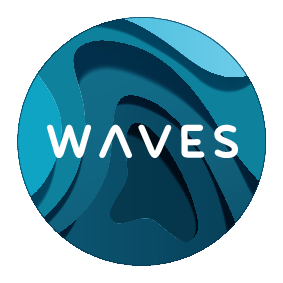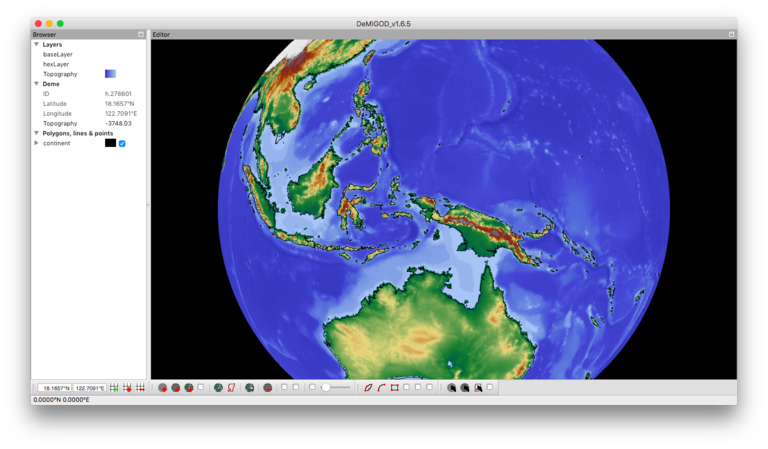ERC project: Waves of history in the South Pacific: A gene-culture coevolutionary approach (Waves)

The ERC Starting Grant-funded project Waves (Waves of history in the South Pacific: A gene-culture coevolutionary approach) draws together data and methods from genetics, archaeology, cultural evolution and historical linguistics to build an integrated population history of the South Pacific.
Modern humans have colonized every possible ecological niche, with the latest expansions being those into the remote islands of the South Pacific. This success has been underpinned both by genetic adaptations to new ecological conditions and by an ever-accumulating store of technological and cultural knowledge gained through social learning. Our dual inheritance systems of genetics and culture interact in unique and unexpected ways, making human history vastly more difficult to infer than for any other species. The emerging field of gene-culture coevolution promises to provide a cohesive framework for modeling the interplay of genes and culture, and will revolutionize our understanding of human historical processes. The Waves project is building the tools necessary to establish gene-culture coevolution in the genomic-era, extending cutting-edge population genetic techniques – including spatial simulation – and allowing the natural integration of data from across genomics, archaeogenetics, archaeology and historical linguistics (Figure 1).
We focus on the South Pacific, a region where past demography remains largely unresolved. While the population history of this region is relatively short it appears extremely complex, comprising not only multiple waves of colonization but also the existence of wide and ongoing interaction spheres through which both seafaring peoples and their cultures maintained long-distance connections. By generating comprehensive new ancient genome-wide datasets across Near and Remote Oceania – and analyzing them alongside present-day genomic, historical linguistic and cultural data – the Waves project will create the first unified gene-culture coevolutionary history of the South Pacific.
The team
| PI | Dr Adam Powell, HBEC, MPI-EVA |
| PhD students | Matej Kriznar, HBEC, MPI-EVA |
| Postdoctoral researchers | Dr Kathrin Nägele, DAG, MPI-EVA |
| Lab technician | Rita Radzeviciute, DAG, MPI-SHH |
| Collaborators | Professor Johannes Krause, Director DAG, MPI-EVA |
Publications
Arango-Isaza, E., Capodiferro, M. R., Aninao, M. J., Babiker, H., Aeschbacher, S., Achilli, A., Posth, C., Campbell, R., Martínez, F. I., Heggarty, P., Sadowsky, S., Shimizu, K. K., & Barbieri, C. (2023). The genetic history of the Southern Andes from present-day Mapuche ancestry. Current Biology, 33(13), 2602-2615. |
Miszkiewicz, J. J., Buckley, H. R., Feldman, M., Kiko, L., Carlhoff, S., Nägele, K., Bertolini, E., Guimarães, N. R. D., Walker, M. M., Powell, A., Posth, C., & Kinaston , R. L. (2022). Female bone physiology resilience in a past Polynesian Outlier community. Scientific Reports, 12: 18857. |
|
Fogarty, L., Ammar, M., Holding, T. M., Powell, A., & Kandler, A. (2022). Ten simple rules for principled simulation modelling. PLoS Computational Biology, 18(3): e1009917. |
Carlhoff, S., Duli, A., Nägele, K., Nur, M., Skov, L., Sumantri, I., Oktaviana, A. A., Hakim, B., Burhan, B., Syahdar, F. A., McGahan, D. P., Bulbeck, D., Perston, Y. L., Newman, K., Saiful, A. M., Ririmasse, M., Chia, S., Hasanuddin, Pulubuhu, D. A. T., Suryatman, Supriadi, Jeong, C., Peter, B. M., Prüfer, K., Powell, A., Krause, J., Posth, C., & Brumm, A. *. (2021). Genome of a middle Holocene hunter-gatherer from Wallacea. Nature, 596, 543-547. |
Posth, C., Nägele, K., Colleran, H., Valentin, F., Bedford, S., Gray, R. D., Krause, J., & Powell, A. (2019). Response to “Ancient DNA and its contribution to understanding the human history of the Pacific Islands” (Bedford et al. 2018). Archaeology in Oceania, 54, 57-61. |
Posth, C. *., Nägele, K., Colleran, H. *., Valentin, F., Bedford, S., Kami, K. W., Shing, R., Buckley, H., Kinaston, R., Walworth, M., Clark, G. R., Reepmeyer, C., Flexner, J., Maric, T., Moser, J., Gresky, J., Kiko, L., Robson, K. J., Auckland, K., Oppenheimer, S. J., Hill, A. V. S., Mentzer, A. J., Zech, J., Petchey, F., Roberts, P., Jeong, C., Gray, R. D., Krause, J. *., & Powell, A. *. (2018). Language continuity despite population replacement in Remote Oceania. Nature Ecology & Evolution, 2(4), 731-740. |



 Open Access
Open Access